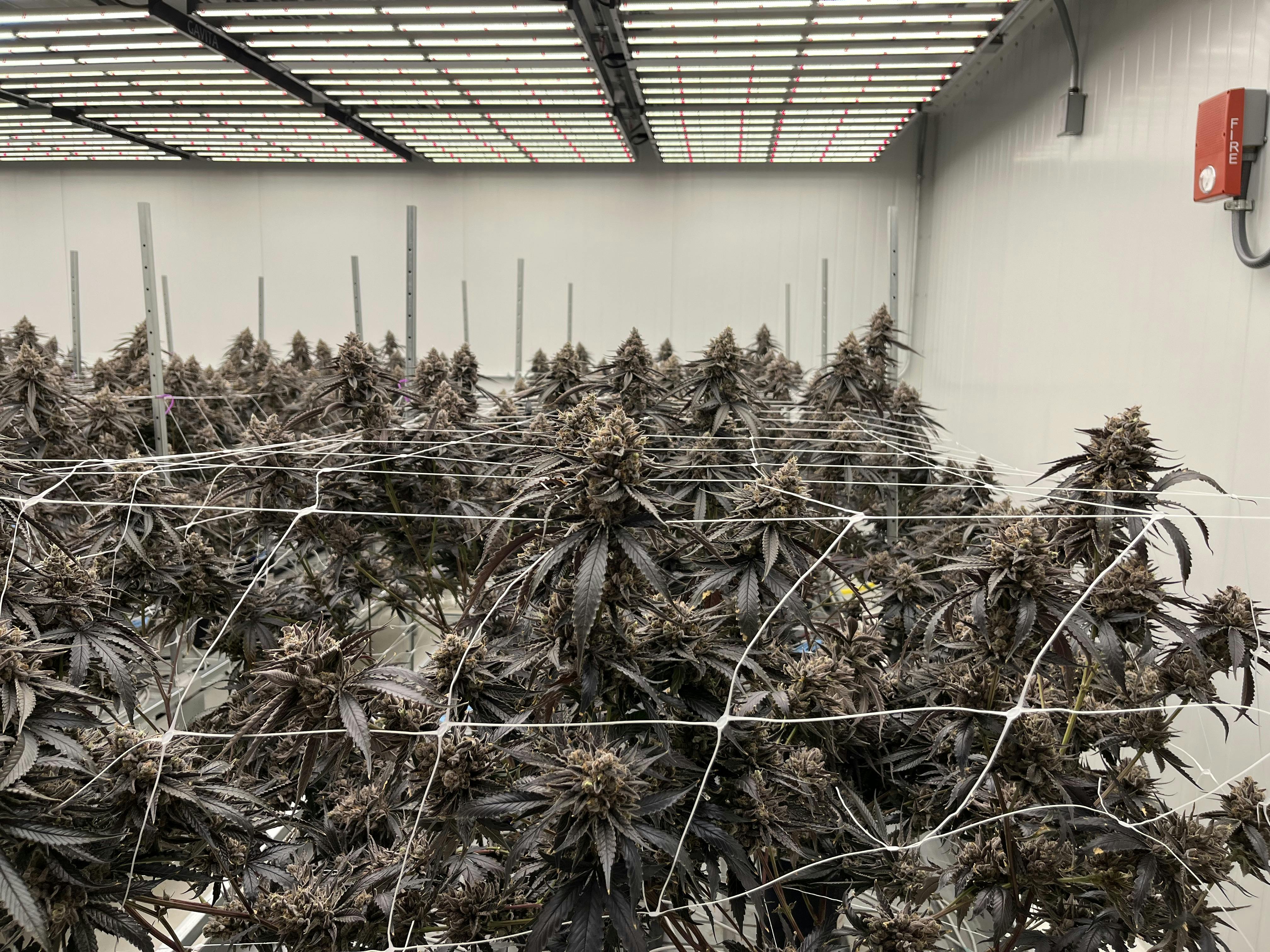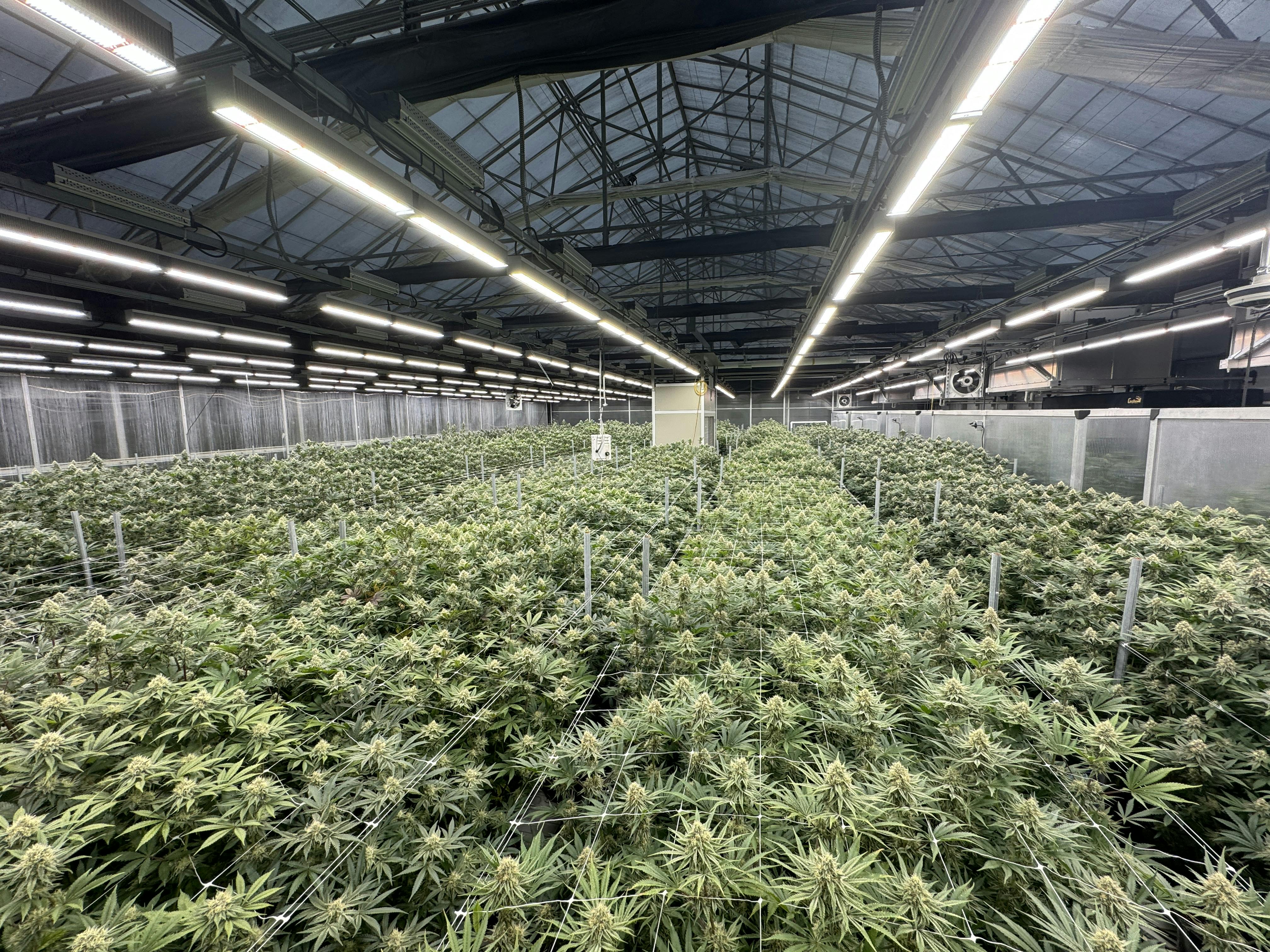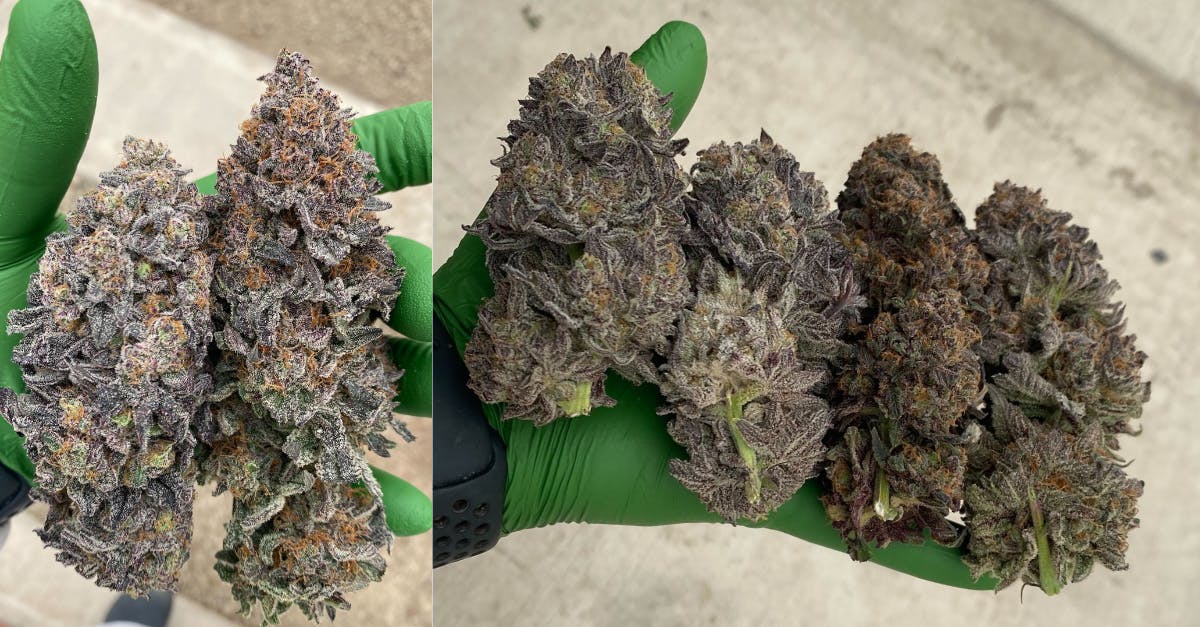Director of Business Development here at Phylos, Ben’s background is in agriculture, evolutionary biology, and cannabis. Ben thinks Elite Seeds will fundamentally change cultivation practices.
Justifiably wary of new gimmicks, cannabis growers are generally cautious to adopt new methodologies. As every grower knows, it takes many cycles to get a system truly dialed in (a constant process) so adding variables is generally ill advised. However, there are some technologies that can be adapted quickly into any system, and are well worth the effort. Surprisingly this particular technology is very old and yet has never truly been applied to cannabis in this way before. I am talking about F1 hybrid seed.
F1 hybrid seeds, also known as first-generation hybrid seeds, are the result of crossing two distinct inbred parent lines. This crossing process harnesses the desirable traits of each parent strain, resulting in offspring with enhanced vigor, uniformity, and potency. Unlike pheno hunt seeds, which are expected to exhibit genetic variability and unpredictability, F1 hybrid seeds offer consistency and uniformity.
“It's so rewarding to develop this F1 seed technology that, while considered standard in most other ag industries, is quite groundbreaking in the cannabis industry,” Jared Reynbery, Sr. Director of Plant Breeding at Phylos, shares. “I strongly believe that transforming cannabis cultivation away from clonal production and towards seed-based production can lower production costs and labor requirements, increase efficiency, and provide medicinal and recreational users with a top shelf product without the top shelf prices.”
There’s a good chance your favorite tomatoes, carrots, lettuce, melons, cucumbers, and many other foods are all produced from F1 hybrids. This technology helped increase production yields and was a major part of the green revolution of the 1970s that led to decreases in malnutrition globally.
A cure for what ails cannabis farmers

Gelato Sunrise
Let's break it down: with falling prices, market over-saturation, and pest and disease pressure (especially HLVd) devastating both small farms and large producers, plus the need to maximize production canopy while cutting costs–this technology hits all the marks. Seed-based production doesn’t require a mother room which is typically the hotspot for HLVD and pest pressure. Seeds (provided the parent stock is disease-free) do not come with any hidden surprises (russet mites, hemp mosaic virus, root aphids) that clone stock may bring, which can tank your grow a few weeks into production.
They also have vigor not seen in clonal production due to the strong tap root that is only present in seed-grown plants. We get calls all the time from growers who are shocked that these tiny seeds quickly catch up and surpass clonal plants in the same veg rooms on the same schedule. Often growers are able to cut back a week or so on veg time which can help them fit another cycle into their annual schedule. When each seed-grown plant matures at the same time, they’re even more surprised. That’s huge when time and money are everything.
Nicholas Rutkaus, Director of Cultivation at Leaf California: “F1 hybrid seeds from Phylos have changed how we view production, allowing us to increase our margins, lower our overall COGs, and have a bumper crop every round. We still run some clones for that ‘flavor of the week’ and will continue to experiment but in new ways we couldn’t before because every square foot was so precious to us. Seed based production gives us the flexibility we need while allowing us to have fun again.” Leaf has won multiple Emerald Cups and is known for their terpene rich, living soil indoor production methods.
The best attributes of both clones and seeds
It is easy to walk into a room and identify the plants grown from F1 hybrid seed because of their vigor, larger stems (requiring less trellising), and yield differentials (that are 10-20% larger than the clones). Most growers know seed-grown plants can do this, but the one thing that has been missing with seeds is uniformity and consistency–both from a morphological and a chemotype perspective. True F1 hybrid seed solves this. With uniformity comparable to clones, growers can get the benefits of clonal production and the benefits of seeds. It sounds wild. To me, seeds are the holy grail of cultivation.

Industry experts are coming to the same conclusions. “Anyone who doubts growing dank from seed should follow what Phylos is doing. Coming from traditional agriculture, it was clear to me from the start that clonal cannabis production was a transitional phase, until true production-ready seed was available,” said Damian Solomon, cultivation consultant and president of King Solomon Nutrients. “I have evaluated Phylos’ Elite Seeds and they are cleaner, simpler, and less expensive to grow than clones, with no compromise in quality. This is the seed I have been waiting for.”
We love hearing this. We would love to see growers convert 50% or more of their canopy to seed-based production, have fewer issues than they do with clonal production at scale, and get back the freedom to experiment with “pheno-hunt” seeds from traditional breeders so new flavors can continue to cycle into the market. Reducing the pressures cannabis farmers face is our overarching goal. I’ve been to over 100 grows in 20 states and 3 countries and the issues across the board are the same. We’ve been diligently listening, collaborating, and working in the background with partners to solve these issues.
Consumer appeal
Bigger yields won't help if you can’t sell the product. We hear similar consumer requests across the country: “purple, candy, gas”, bag appeal, buds dusted in trichomes and oozing rich terpene aromas, and COA’s showing THC at 25-30% (or higher). For that reason, we took a long time developing F1s that meet these requirements. We were even able to add desirable, uplifting “sativa” traits into some – rarely seen at scale given the typically long flowering times of the classics not fitting into the standard “8 week” cycle time of most growers.
We want to help farms expand their playbook with deep purple varieties like “Grape Bubblegum” (which smells just like it sounds), “Lemon Fresh” (a terpinolene & limonene explosion of fresh picked lemon aroma with a super hazy background), and Sweet Tartz (which is the quintessential “purple, candy, gas” variety).

Partnering with growers to breed diverse and better plants
After years of hard work as a small team, collaboration with our friends in the industry, and lots of sessions with cultivators to understand how we can best operate in a way that advances the industry, growers can benefit from the fruits of our labors and bring amazing products to consumers as only they can. With 24 total F1 hybrids set to hit the market from us by the end of 2024 we will continue to expand our menu, working with farmers to see what new directions we can take these plants, what new aroma profiles we can create, and what minor cannabinoids we can add to push the effects. We are also introgressing new, helpful traits like stress tolerance/sexual stability and botrytis/PM resistance through our traditional breeding methods, with the help of marker assisted selection.
I firmly believe F1 hybrids will change cannabis production forever, and benefit everyone from traditional breeders & farmers to large scale cultivators, and downstream to consumers. Along the way Phylos will continue to share what we are doing and how in various forms. We hope to help in this way too while continually learning from those in the industry that have been pushing the boundaries since day one.
– Ben Adams, Director of Business Development
